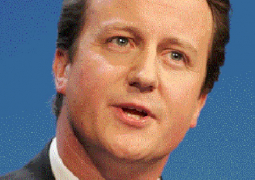We
are alarmed at the fact that our government and, by extension, our economy and
nation, is treading on a lame foot.
The
poor state of affairs in our economy has been made bare by the Barrow
government, as further and clearly explained by the finance minister in signing
the $56-million dollar World Bank budgetary support to our nation on Tuesday at
the Kairaba Beach Hotel.
We
have been given a dire and bleak statistics or report about the economy
inherited by the current government, hence they have set themselves on a course of reform they think would transform
the economy of our nation for the better, although they have not really given
us a clear and thorough roadmap of the reforms they intend to put in place to
get our national economy on a better footing, apart from saying the reforms
include reducing net domestic borrowing to 1 per cent, by December 2017
compared to 11% in 2016.
The
Barrow Government needs to come up with very sound and redeeming reforms in our
national economy.
The
country’s macroeconomic developments in 2016 have been impacted considerably by
“the economic mismanagement or
fraudulent practices of the previous regime” as well as by external shocks in
the same year, as stated by the finance minister.
Although
economic growth in 2016 is now estimated to have reached 2.2 per cent, it is
markedly lower than the 4.3 per cent growth in 2015. This, the government says,
is due to limited availability of foreign exchange, weak agricultural output
and the effect of the political impasse on tourism during high season.
We have also been told that with the erratic
rainfall during the summer, some 90 per cent of the groundnut cash crop “will
be lost according to the pre-harvest report”.
Headline
inflation, it has been confirmed, stood at 8.8 per cent in February 2017, well
above the Gambia Central Bank’s target of 5 per cent, driven by high food
prices and the depreciation of the dalasi against the US dollar.
Net
international reserves, it was also disclosed, have fallen to a “precariously
low level” of only US$22.3 million in February 2017, which is less than one
month of imports cover.
The
increasing cost of operational expenditures by the government is also reported
to have caused a huge damage to our economy, even as it continues to pose
serious challenge for the government.
These
expenditures have continued to increase considerably “above government
resources, leading to increasing government borrowing, thus generating a debt
to GDP ratio of about 120 per cent as at end 2016 compared to 108 per cent in
2015”.
Expenditures
on “Interest payments, personnel emoluments, subsidies and transfer and
purchase and maintenance of government vehicles, as well as the size of our
diplomatic mission, have been going into the stratosphere.
Even
though the government has said such a phenomenon is “clearly unsustainable” and
is committed to reforms that would return the country to macroeconomic
stability and restore the economy, we are yet to see what reforms and
prosperous economic game plan they have for our nation.
Such
resources as the $56 million given by the World Bank to our government would
only serve to mend some problems for some time but not to really solve our poor
economic condition as a nation.
The
government therefore needs to take up the responsibility of coming up with a
clear roadmap of an economic game plan that would redeem our nation from the
brink of poverty and hardship.
“There
is a need for financial reform along ethical lines that would produce in its
turn an economic reform to benefit everyone.”
Pope
Francis


